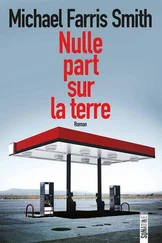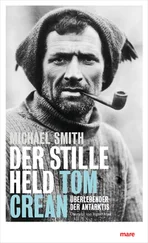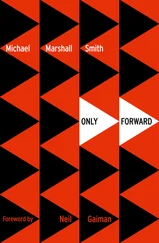William remembered one such from school, a small boy with an intensely freckled face whose second initial was B. When it was discovered that this was for Beverley, a name that is technically available for both boys and girls, his life had become a torment of derision. Such is the cruelty of children, and of boys in particular, displayed in full vigour when difference or weakness is discovered. William tried to dredge the full name out of his memory: George Beverley Jones. That was it. And this George Beverley Jones had suddenly disappeared one day, absent from school - driven out, no doubt, sent somewhere else where the name might not follow him. Even now, in his taxi to Highgate, William felt a flush of embarrassment and regret at the ancient childhood cruelty. He had been one of those who had called out Beverley! in the corridors; everybody had.
Of course it was easy for parents to make a mistake, even if they chose popular names. What is unexceptional at one time might at another be ludicrous, or simply unfashionable. Elderly ladies called Euphemia - and there must be very few left - had been nothing unusual as girls, and no doubt never dreamed that their name would later come to be regarded as quaint. In fifty years’ time, the same conceivably might be said of the legions of Kylies, who already might be feeling a certain suspicion that they were touched with the mark of a particular decade. While Euphemia could be shortened to Effie or even Ef, there was not much that one could drop from Kylie. One might become Ky, perhaps, he mused; there was a certain ring to that.
River Phoenix, thought William. Now there was a name! Rover Phoenix would be the canine version, and it was just as effective, just as redolent of whatever it was that made River Phoenix such a desirable name. Rover Phoenix would be a good-looking dog; compact, decisive, with a baritone bark and a light in his eye. An American dog, no doubt; certainly a dog who would go down well in California, in the back of an open-topped car, his ears catching the wind. Rover Phoenix.
Mind you, he reflected, there are traffic jams in California, and we should not imagine that open-topped cars there proceed with much greater dispatch than London taxis, caught, as William’s taxi now was, in a slow-moving line of grumbling, irritable humanity. Even so, he was nearing his destination, and he felt a curious sense of anticipation, tinged with the realisation that what he was doing was somewhat absurd. Why should he be forced to get a dog in order to persuade his son to move out? It seemed quite ridiculous. It was Marcia, again. He always allowed himself to be persuaded by her to do things he really should not be doing.
He should stop the taxi; he should ask the driver to turn it round and go home. He could phone the dog’s owner and explain that he had decided that they should not go ahead with the whole ridiculous scheme. He could so easily do that.
But then the taxi driver half turned in his seat and said, ‘Number eight, wasn’t it?’ And William said yes, it was.
As they stopped at the front gate, somewhere inside the house a dog barked.
‘This way,’ said Manfred James. ‘We’ll go into my study, I think.’
William looked at Manfred. The columnist was a tall man somewhere in his forties, wearing a small pair of unframed glasses and with a slightly distracted, scholarly air to him. The disdain that William had picked up on the telephone was present in the flesh, he thought; his host’s aquiline nose was carried at such an angle as to look down on his guest, as if slightly displeased - if noses can express such things. He had welcomed William at the front door and led him into a book-lined room off the small entrance hall. As William stood there, glancing at the bookshelves, the barking that had greeted his arrival abated. That would be Freddie de la Hay, shut away in some room at the back. Dogs barked, of course; he had not thought of the implications of that for Corduroy Mansions. Would Freddie de la Hay’s barking carry to the flat downstairs and disturb the girls? Eddie would not like it, but then that was the whole point of the exercise. The more Freddie de la Hay and Eddie got on each other’s nerves, the better.
‘Tea?’ asked Manfred.
William accepted, and Manfred went out of the room, gesturing casually for his guest to sit on the small leather sofa backed up against a wall of shelves. As he sat down, William glanced at the books behind him. They seemed to be arranged in no particular order: Poland’s Past rubbed shoulders on one side with Schopenhauer Delineated and on the other with a small book on the history of rope-making in Bridport. Then came Garner’s Modern American Usage and a line of vintage Graham Greenes, as tatty and desolate as the territory they described.
A few minutes later Manfred came in with two mugs of tea. ‘You may conclude only one thing from my shelves,’ he said, noticing the direction of his guest’s gaze, ‘and that is that I have not bothered to organise the books according to any of the accepted patterns.’
William accepted the mug of tea offered him. ‘It’s difficult. I find that—’
Manfred, lowering himself into a chair opposite the sofa, cut him short. ‘Alphabetical arrangement is not the only option,’ he said. ‘And I’m always slightly suspicious of people whose books are arranged alphabetically. OCD issues. One isn’t a bookshop, you know. Nor a library.’
William shrugged. ‘It must be helpful, though. I find that when—’
‘The late Alistair Cooke had a wonderful scheme,’ Manfred continued, ‘whereby he placed books on the United States in such a position on his wall of shelves as to reflect their geographical situation. Books on Montana were at the top and those on Florida were down in the bottom right-hand corner.’
William smiled. ‘I once read about how the Victorians—’
‘Yes,’ said Manfred, ‘shelved books by male authors separately from those by female authors, out of a sense of propriety. Frightfully funny.’ He took a sip of his tea, staring intently at William over the top of the mug. ‘Now then, Freddie de la Hay. It’s an extraordinary coincidence that Maria—’
‘Marcia,’ interrupted William.
Manfred looked slightly annoyed. ‘Of course. Marcia. That Marcia should have discovered that we wanted to share our dog. And then discovered that you would be quite keen on an arrangement of that sort. Isn’t London extraordinary? There will be a consensus ad idem somewhere for every matter under the sun. And this applies to selling things too. If there is one person wishing to sell a collection of the stamps of Fiji, there will be some other person anxious to buy just such a thing. London, I think, is the perfect market. Ideas. Things. People. Every vendor will find a purchaser.’
‘I’m a wine merchant,’ offered William. ‘I sometimes go to the wine auctions and you find that even the most obscure—’
‘Yes, of course,’ interjected Manfred. ‘Now, Freddie de la Hay. He’s a remarkable dog, you know. We found him down in Kent, in a little place called Sutton Valence. Charming spot. A friend had put us in touch with a breeder down there and we chose him from a litter of four. He was by far the most intelligent-looking of the lot. I can’t stand an unintelligent dog, can you?’
‘It depends on the personality,’ said William. ‘You find that some dogs who are a bit dim are very affectionate, and then—’
‘Of course,’ interrupted Manfred. ‘That’s to be expected. But we wanted to carry out a little experiment with our dog and so we wanted one that was up to the challenge.’
William frowned. ‘Experiment?’ He decided that the best way to conduct a conversation with the columnist would be to use sentences of only one word. In this way, a contribution could be made before Manfred had time to interject.
Читать дальше










